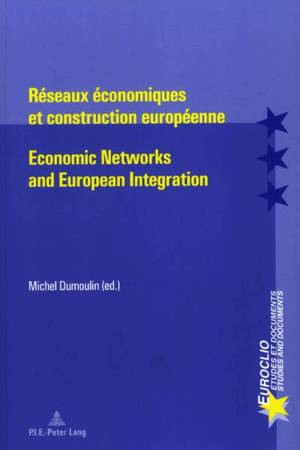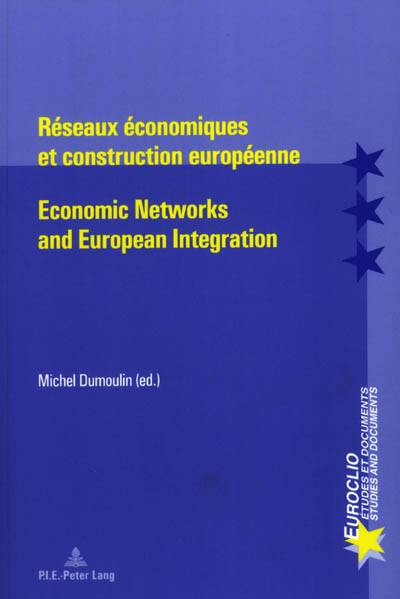
Bedankt voor het vertrouwen het afgelopen jaar! Om jou te bedanken bieden we GRATIS verzending (in België) aan op alles gedurende de hele maand januari.
- Afhalen na 1 uur in een winkel met voorraad
- In januari gratis thuislevering in België
- Ruim aanbod met 7 miljoen producten
Bedankt voor het vertrouwen het afgelopen jaar! Om jou te bedanken bieden we GRATIS verzending (in België) aan op alles gedurende de hele maand januari.
- Afhalen na 1 uur in een winkel met voorraad
- In januari gratis thuislevering in België
- Ruim aanbod met 7 miljoen producten
Zoeken
Réseaux Économiques Et Construction Européenne - Economic Networks and European Integration
actes du colloque de Bruxelles, 16-18 octobre 2002
Michel Dumoulin
€ 82,50
+ 165 punten
Omschrijving
La notion de réseaux économiques n'a guère encore été mise en relation avec celle de gouvernance par les historiens. Ce volume s'y essaie à travers deux séries de questions. D'une part, quels sont les acteurs économiques qui, en dehors des instances publiques, combattent ou portent le projet européen et quels sont leurs objectifs? D'autre part, comment, à travers des ensembles de relations complexes, notamment de maillages des espaces sociaux, ces acteurs influencent-ils une décision, une attitude ou une orientation concernant la gestion de la Cité européenne? Vingt-huit contributions répondent à ces questions, sans omettre de prendre en compte les problèmes de méthode, le témoignage d'acteurs et les interpellations de décideurs contemporains.
The notion of economic network has rarely been linked by historians to that of governance. This volume attempts it by means of two series of questions. On the one hand, who are the economic actors that, beyond public authorities, fight or support the European project and what are their objectives? On the other hand, how do these actors, by complex systems of relations, principally interconnections of the social sphere, influence a decision, an attitude or an orientation relating to the governance of Europe? Twenty-eight contributions address these questions, and take into account issues of methodology, testimonies of actors and the interpellations of today's decision-makers.
The notion of economic network has rarely been linked by historians to that of governance. This volume attempts it by means of two series of questions. On the one hand, who are the economic actors that, beyond public authorities, fight or support the European project and what are their objectives? On the other hand, how do these actors, by complex systems of relations, principally interconnections of the social sphere, influence a decision, an attitude or an orientation relating to the governance of Europe? Twenty-eight contributions address these questions, and take into account issues of methodology, testimonies of actors and the interpellations of today's decision-makers.
Specificaties
Betrokkenen
- Auteur(s):
- Uitgeverij:
Inhoud
- Aantal bladzijden:
- 506
- Taal:
- Frans, Engels
- Reeks:
- Reeksnummer:
- nr. 29
Eigenschappen
- Productcode (EAN):
- 9789052012346
- Verschijningsdatum:
- 14/06/2004
- Uitvoering:
- Paperback
- Formaat:
- Trade paperback (VS)
- Afmetingen:
- 150 mm x 220 mm
- Gewicht:
- 689 g

Alleen bij Standaard Boekhandel
+ 165 punten op je klantenkaart van Standaard Boekhandel
Beoordelingen
We publiceren alleen reviews die voldoen aan de voorwaarden voor reviews. Bekijk onze voorwaarden voor reviews.









